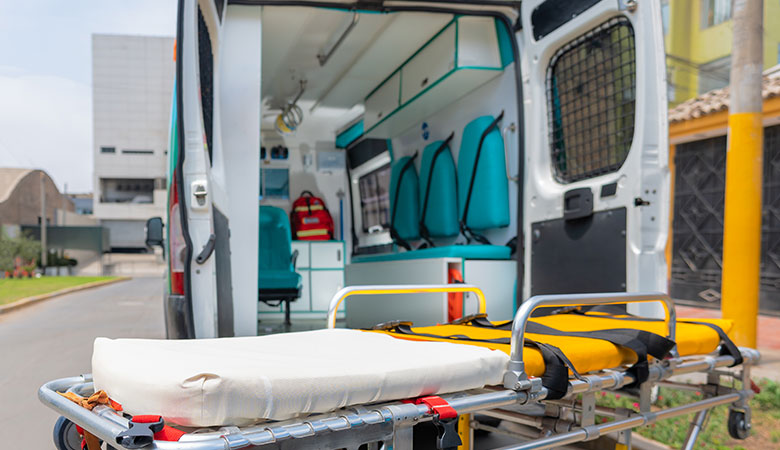Getting to a medical appointment isn’t always simple. For many, it can feel like a long journey – even if the destination is just across town. And while getting there safely is essential, there’s much more to the story than just reaching point B.
When someone is on their way to a clinic, hospital, or therapy session, they’re carrying more than a chart or prescription. They’re carrying anxiety, fatigue, and sometimes fear. That’s why medical transportation should never feel like a cold, impersonal shuttle. It should feel like care begins the moment the ride does.
Let’s talk about what patients really need on the way to care, and how meeting those needs can make a big difference.
The Ride Is Just the Start
A vehicle can have four wheels and a seatbelt, and it still feels like the loneliest place in the world. For patients – especially those who are elderly, disabled, chronically ill, or recovering – being transported isn’t just about logistics. It’s about feeling seen, respected, and treated like a human being, not a task.
Patients often face a mix of physical discomfort and emotional distress. That mix demands something far deeper than just a scheduled pickup.
They need comfort without judgment. They need calm instead of chaos. They need care that starts before they enter the doctor’s office.
What Really Matters on the Road to Care
The journey itself has the power to soothe – or to stress. Every moment inside that vehicle can either prepare someone for healing or leave them feeling overlooked. Here’s what makes the difference.
A Kind Voice and a Listening Ear
Sometimes, what a person needs most is someone who listens. Not every ride has to be filled with conversation, but knowing there’s someone nearby who cares – who truly sees them – makes a world of difference. When a driver or attendant greets a patient by name or offers a few kind words, it shifts the whole tone of the experience.
Gentle Handling and Physical Support
Physical help matters more than people think. A patient might be struggling with mobility, in pain, or feeling weak. Offering a steady hand or being patient during loading and unloading isn’t just helpful—it’s respectful. When movements are slow, deliberate, and careful, patients feel safe.
Privacy and Dignity
Being transported can be deeply personal. For those in wheelchairs, stretchers, or recovering from procedures, even the ride can feel vulnerable. Privacy isn’t a luxury – it’s a necessity. Simple acts like drawing window shades or positioning a patient with dignity speak volumes.
Calm Over Rush
Every minute matters in healthcare – but so does peace. A rushed ride, loud music, or abrupt driving can leave a patient feeling rattled before they even arrive. On the other hand, calm, steady transportation creates a sense of trust. It helps people breathe, relax, and prepare.
The Emotional Weight Patients Carry
Beyond physical needs, there’s an emotional layer few talk about. For many patients, the ride to a medical facility carries memories – some of them difficult. It could remind them of a previous emergency, a painful diagnosis, or a long history of appointments.
During these moments, a quiet, respectful atmosphere can offer a kind of emotional rest. The ride becomes a buffer – a gentle space between daily life and whatever lies ahead.
More Than Transport: It’s a Lifeline
For those without family nearby, or with mobility issues, medical transport isn’t just helpful – it’s essential. It allows people to receive care they otherwise couldn’t access. But more than that, it reconnects them to their lives.
Being able to get to dialysis, therapy, post-op checkups, or mental health support means the difference between progress and setback. And every dependable, dignified ride strengthens that journey.
What Compassion on Wheels Looks Like
Here’s what real care on the road can feel like:
Warm greetings instead of rushed pickups
Soft seat cushions that ease pressure and pain
Supportive straps and lifts that never pinch or pull
Knowledgeable drivers who understand medical conditions
No judgment if a patient is late, scared, or upset
Flexibility when appointments run long
Respectful silence or light conversation – based on the patient’s mood
A smooth ride that doesn’t jostle sensitive joints or post-surgery areas
Timely arrivals that reduce stress and waiting-room anxiety
Each one of these actions might seem small – but together, they make patients feel valued. They remind people that they matter, not just as patients, but as people.
Care That Starts With the First Mile
The journey to care should never feel cold or clinical. It should feel like the first step toward healing. When patients receive more than just a ride – when they’re met with attention, respect, and compassion – they arrive not just transported, but supported.
When transportation providers see this part of the healthcare experience as just as important as the care itself, patients start to feel that they’re not alone. And that matters – more than anyone realizes.
The Final Verdict: Care Beyond the Clinic
The journey to health isn’t just measured in lab results or appointment check-ins. It’s also measured in how patients are treated before they even arrive. For many, that begins in the vehicle that picks them up.
My Medical Ride Transit Services understands that the road to care starts long before a patient walks through the clinic doors. By focusing on respect, reliability, and the real human experience behind every ride, they’re helping patients feel better not just physically, but emotionally too.
Because sometimes, it’s not about the destination – it’s about how you get there. If you’re thinking about what patients really need on the way to care, remember:
Every ride is a chance to offer more than transport. It’s a chance to offer care that travels with them.
